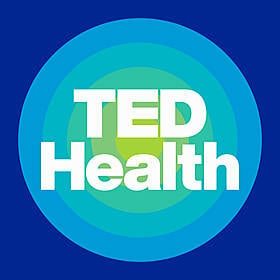
Your right to mental privacy in the age of brain-sensing tech | Nita Farahany
12 September 2023 - 14 minsNeurotechnology, or devices that let you track your own brain activity, could help you deeply understand your health. But without privacy protections, your innermost thoughts, emotions and desires could be at risk of exploitation, says neurotech and AI ethicist Nita Farahany. She details some of the field's promising potential uses -- like tracking and treating diseases from depression to epilepsy -- and shares concerns about who collects our brain data and how they plan to use it, ultimately calling for the legal recognition of "cognitive liberty" as we connect our brains and minds to technology.

How AI can bridge the Deaf and hearing worlds | Adam Munder | from TED Tech
Software engineer Adam Munder is on a mission to break down communication barriers between the Deaf and hearing worlds. In a live demo, he introduces OmniBridge — an AI platform that translates American Sign Language into English text in real time — and demonstrates how this tech could ensure every conversation can be fully understood, regardless of the participants' hearing abilities. Munder is joined onstage by ASL interpreter Christan Hansen and TED’s Hasiba Haq. Learn more about our flagship conference happening this April at attend.ted.com/podcast Hosted on Acast. See acast.com/privacy for more information.
7 mins
3 March Finished

The science of raising kids (Part 3): Why adolescent brains are wired differently | Jennifer Pfeifer
Neuroscientist Jennifer Pfeifer digs into the fascinating brain changes driving young people’s behavior during the critical years of adolescence. She debunks some of the biggest misunderstandings about teens — including puberty, hormones and the impact of social media on mental health — and shows how to support kids during this period of growth and possibility. Learn more about our flagship conference happening this April at attend.ted.com/podcast Hosted on Acast. See acast.com/privacy for more information.
20 mins
24 February Finished

The science of raising kids (Part 2): How to raise healthy kids with Dr. Shari Barkin
From negotiating food choices to limiting screen time, raising healthy kids is complicated—but it doesn’t have to be, says pediatrician Dr. Shari Barkin. Dr. Barkin joins Shoshana to talk about the ways caregivers can carve out 10 minutes of their day to model a healthy lifestyle and help everyone in the family thrive. Talk featured: Inside the mind of a newborn baby - Claudia Passos Ferreira Learn more about our flagship conference happening this April at attend.ted.com/podcast Hosted on Acast. See acast.com/privacy for more information.
40 mins
17 February Finished

The science of raising kids (Part 1): Are you raising anxious kids? with Lenore Skenazy and Mathilde H. Ross
Whether it’s micromanaging playtime, constantly hovering or incessantly texting, the adult takeover of childhood has created a crisis of anxiety in both children and parents. In this episode, Lenore Skenazy, cofounder and president Let Grow, an organization dedicated to normalizing childhood independence, lays out the unexpected benefits of letting our kids be a bit more “free range.” Then psychologist Mathilde H Ross makes the case on why parents should trust their instinct instead of chasing trends. Talks Featured Why you should spend less time with your kids - Lenore Skenazy Is parenting advice leading to more anxious kids? - Mathilde H. Ross Learn more about our flagship conference happening this April at attend.ted.com/podcast Hosted on Acast. See acast.com/privacy for more information.
26 mins
10 February Finished

Interview: Matthew Facciani on fighting healthcare misinformation
Bombarded with health headlines? Unsure how to discern fact from fiction? Social scientist Matthew Facciani breaks down identity politics and the psychology that shapes our most deeply held views. He discusses how healthcare professionals can do better at communicating public health policy to everyday people and why following someone whose viewpoint you disagree with can help you reflect on your biases. Talk Featured 3 questions to ask before buying into health trends - Dr. Karen Dawe Learn more about our flagship conference happening this April at attend.ted.com/podcast Hosted on Acast. See acast.com/privacy for more information.
40 mins
3 February Finished

Why building new proteins from scratch is our new superpower | David Baker
The rapidly evolving field of protein design is revealing solutions to some of the world’s greatest problems, whether it's blocking a virus, breaking down a pollutant or creating brand-new materials. In conversation with TED’s Whitney Pennington Rodgers, biochemist David Baker explores his team’s Nobel Prize-winning work using AI to design new proteins with functions never before seen in nature — achieving breakthroughs that have fundamentally changed the future of science. (This conversation was part of an exclusive TED Membership event. TED Membership is the best way to support and engage with the big ideas you love from TED. To learn more, visit ted.com/membership.) Learn more about our flagship conference happening this April at attend.ted.com/podcast Hosted on Acast. See acast.com/privacy for more information.
29 mins
27 January Finished





















